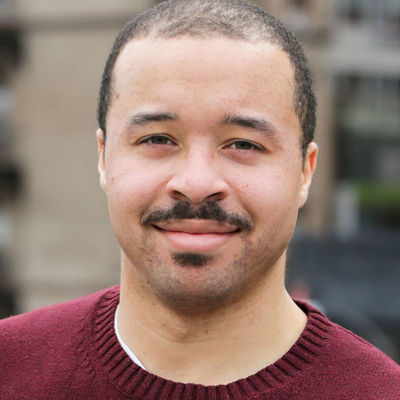Silas Altheimer

Silas Altheimer is in his second year at Notre Dame Law School, and is responsible for coordinating and facilitating the advanced study program on race, justice, and policing, a part of the Klau Center's "Building an Anti-Racist Vocabulary" initiative.
“Conflicts, recessions, natural disasters, and other related events continuously bring discrimination into the light. Therefore, I have to understand more ways in which people continue to fight for their civil rights."
How did you first become interested in civil or human rights?
It all started roughly twelve years ago. When I was at Haverford College, I loved reading about how religion shaped the Civil Rights Movement. I enjoyed reading how Black churches used faith as inspiration to correct moral wrongs at the state and federal level. Later, I took a course on W.E.B. DuBois in graduate school, and that inspired me to think more globally about human rights.
From what or whom have you drawn inspiration?
I draw inspiration from contemporary human rights violations across the world. Disenfranchisement remains prevalent on every continent. Throughout history, religion has motivated people to dissent against oppressive governments. This pushes me to think about the different ways that violence appears in my country and in other nations.
What is the specific emphasis of your research or work? What issues do you feel most determined to address in your future work?
Last semester I wrote about why our country should protect religiously motivated non-violent protests. It was a tough exercise. It required me to think about how the issue extends from local governments to the federal level. Academically, I wonder if democracy in the West is possible without religion? That question keeps me up at night when I think about religion, law, and democracy.
What obstacles do you perceive as the most challenging in your work?
Conflicts, recessions, natural disasters, and other related events continuously bring discrimination into the light. Therefore, I have to understand more ways in which people continue to fight for their civil rights. Another obstacle is time. As a law student, I'm constantly keeping up with classes. Leading the graduate reading group for this academic year has pushed me to think about the real-life implications of what I learn in class.
What paths forward do you see as the most promising? What questions do you feel are the most important to answer in order to find a path forward?
Is democracy in the West possible with populism? Is religious pluralism possible within the scope of "religious freedom?" Regardless of ideology or political leaning, colleges and universities are finally willing to wrestle with these questions. That's what gives me hope. There are tough discussions ahead and we will need to answer them honestly to make sure that people in Western democracies learn how to combat hate and discrimination.